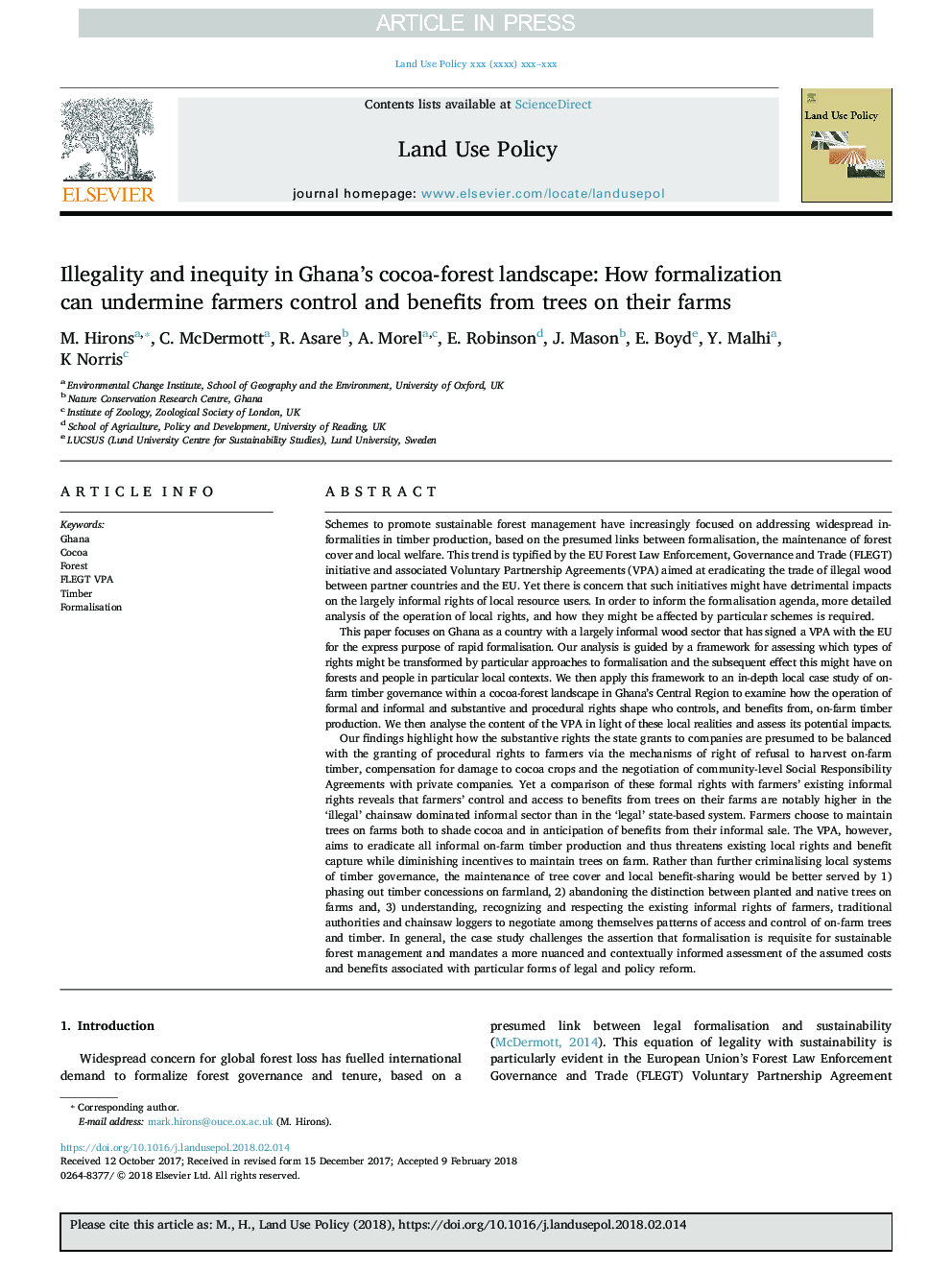| Article ID | Journal | Published Year | Pages | File Type |
|---|---|---|---|---|
| 6546282 | Land Use Policy | 2018 | 9 Pages |
Abstract
Our findings highlight how the substantive rights the state grants to companies are presumed to be balanced with the granting of procedural rights to farmers via the mechanisms of right of refusal to harvest on-farm timber, compensation for damage to cocoa crops and the negotiation of community-level Social Responsibility Agreements with private companies. Yet a comparison of these formal rights with farmers' existing informal rights reveals that farmers' control and access to benefits from trees on their farms are notably higher in the 'illegal' chainsaw dominated informal sector than in the 'legal' state-based system. Farmers choose to maintain trees on farms both to shade cocoa and in anticipation of benefits from their informal sale. The VPA, however, aims to eradicate all informal on-farm timber production and thus threatens existing local rights and benefit capture while diminishing incentives to maintain trees on farm. Rather than further criminalising local systems of timber governance, the maintenance of tree cover and local benefit-sharing would be better served by 1) phasing out timber concessions on farmland, 2) abandoning the distinction between planted and native trees on farms and, 3) understanding, recognizing and respecting the existing informal rights of farmers, traditional authorities and chainsaw loggers to negotiate among themselves patterns of access and control of on-farm trees and timber. In general, the case study challenges the assertion that formalisation is requisite for sustainable forest management and mandates a more nuanced and contextually informed assessment of the assumed costs and benefits associated with particular forms of legal and policy reform.
Keywords
Related Topics
Life Sciences
Agricultural and Biological Sciences
Forestry
Authors
M. Hirons, C. McDermott, R. Asare, A. Morel, E. Robinson, J. Mason, E. Boyd, Y. Malhi, K Norris,
